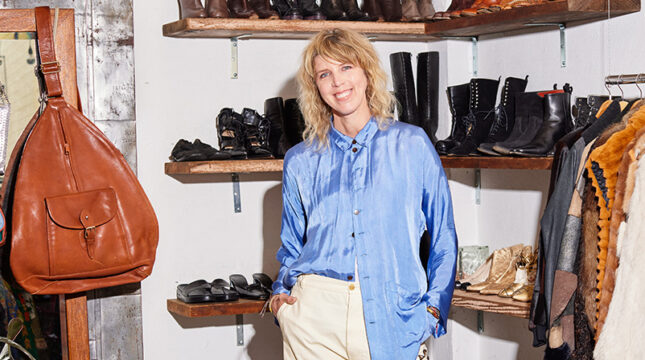What is upselling?
Upselling encourages customers to buy a higher-end product with more features than their original choice. It can help increase sales and provide customers with products that might better suit their needs.
Upselling can also help sustain a business without raising prices. Terrence Kelleman, owner of Mighty Wallet, introduced two wallet-related items as upsell options. “I’ve been avoiding raising my prices for my consumers,” he says. “These new items have increased our average order value by 10%.”
An upsell can also refer to services that surround a product rather than just an upgrade on a product itself. For example, Simple Fulfillment upsells upgraded delivery options during checkout. “We often recommend premium packaging options or expedited shipping for products bought frequently as gifts, leading to a noticeable uptick in average order values,” says Virginia Miller, marketing coordinator for the company.
What is cross-selling vs. upselling?
Jessica Wilson, co-founder of Inyouths, explains. “Upselling involves persuading a customer to purchase a higher-end or additional product or service than originally intended, while cross selling suggests complementary items.”
For example, cross-selling is suggesting a belt that matches the shoes, or an extra package of ink cartridges. Dillon states, “When customers are looking at janitorial supplies, we suggest adding complementary cleaning chemicals at a checkout offer, which enhances their shopping experience and increases our average order value.”
Both cross-selling and upselling can help increase your bottom line. But more importantly, they can make your customer feel that they’ve acquired something special that will benefit them more than their original choice.
How to upsell customers
Successful upselling means building customer relationships and understanding their needs. To upsell most effectively:
- Offer service, not sales. Pay close attention to customer buying habits, preferences and needs. This insight lets you align upsell offers with their interests and makes the suggestion feel more like a service than a sales pitch.
- Highlight premium product value. Focus on how the enhanced features or better quality can provide a better experience or long-term savings.
- Create a deal. Bundle products at attractive prices to help encourage customers to see the worth in higher-end purchases.
- Educate your customer. Help your customer understand the benefits of an upgrade, especially when the differences aren’t immediately obvious. “By personally demonstrating how products can work better together (such as a commercial floor buffer with specific cleaning chemicals), we’ve seen a significant uptick in both engagement and upsell purchases,” says Dillon.
How to identify upselling opportunities
James Wilkinson, CEO of Balance One Supplements, explains there’s a precarious line between enhancing the customer’s purchase and burdening them. “If you’re asking a rookie fitness enthusiast who just wants a basic whey shake about upgrading to an expensive, five-protein synergy mix regimen, you’re probably going too far,” says Wilkinson.
Timing is the key to upselling success. And upselling at the wrong time is an e-commerce risk. Knowing when (and when not) to make an offer helps you maintain customer trust and satisfaction.
When you introduce an upgraded product at the right time, it’s like saying, “Hey, I’ve got your back.” This can build customer trust.
Here’s how you can keep an eye out for those golden upselling opportunities:
- Listen to your customers. Ask open-ended questions and listen closely to their feedback, questions and comments.
- Seize special moments: Special occasions like birthdays or anniversaries are prime moments for suggesting upgrades.
- Be proactive: Consider common hurdles your customers might face and offer premium solutions that can prevent these problems from occurring.
By keeping these strategies in your toolkit, you’re not just selling. You’re enhancing your customer’s experience in a way that feels natural and caring.






